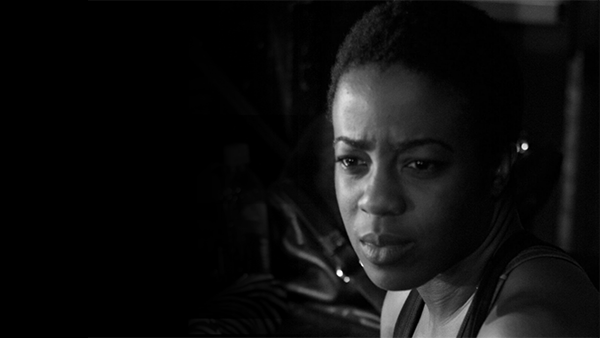
To Be Black, Female and a Business Owner
Over 20 million Americans are unemployed. Billions of dollars have been doled out to keep the US economy from falling off of a cliff. Business activity has not returned to normal and we’re uncertain how long this pandemic will last.
I, like many business owners, am trying to keep my head above water.
The decline and loss of regular business activity has left me in a state of anxiety and constant survival mode hoping that the summer will bring some reprieve.
In the midst of it all, my uncle succumbed to conditions caused by COVID-19 and passed away. It was very early on in the pandemic and hospitals had not yet realized how lonely and depressed COVID-19 patients felt while battling for their life.
We had no direct communication with him in his last moments and the next day he was cremated. It’s as if he had vanished into thin air, leaving our family in his wake.
To deal with that loss, I used any moment not spent consoling family to dig deeper into my work.
Too Heavy to Bear.
Hours became days. Days became weeks. Suddenly, 3 months had passed. After months of treading water; fighting for the future of my business, mourning the loss of my loved one and surviving this health crisis — it felt like a weight too heavy to bear.
So, by the last week of May, I was exhausted and looked to the television and Netflix for some entertainment to free my mind. Instead, I was hit with 8 minutes and 46 seconds documenting the slow, preventable death of another black man.
Overwhelmed. Sad. Hopeless. Shocked but not surprised to see this horror show playing out once again, I went into mourning. That’s the only way I can explain it…mourning. Not just for George Floyd, but for all the black men I know. I mourned the innocence of my sensitive, smart, fun little black cousins who will eventually have to have “the talk.” I mourned the mothers of black teenage boys who are terrified every time their sons leave their home. I mourned my unborn black children.
If you have ever lost someone close to you, you know how it feels. The deep sadness that keeps you in bed, staring into space or sitting in a corner away from the world. You’re numb. You don’t want to speak to anybody. You hope for brighter days but know that the sadness will come back again like a big wave that washes over you. So you brace for it.
Every time these senseless deaths happen, I have more of these emotions than I have words to express them.
As a business owner, I don’t have the luxury of taking paid time (bereavement leave and sick days) off. I have to get dressed, put on make-up, fluff my afro and show up.
I have to bring my A-game to every employee, customer and prospective client. In times like this, it’s hard to be “on,” but I do it.
How Are You?
For the first time ever, white and other non-black colleagues are asking “how are you?” and “what can I do?” I thank those who have reached out and checked in on me and I say, “Here’s where you can start“:
Check on your Black friends because they are likely not ok for many of the reasons I shared above. But before you do, read this.
Invite black professionals and business owners to your networking groups, business meetings and rooms where they are not represented.
To my non-black readers: imagine you’re invited to a conference with 90% black professionals. You would be looking for someone you know or at least someone that looks like you. Belonging is one of our most basic human needs. Imagine you didn’t find that person. How would you feel? Would you stay? Would you return to the conference?

A Seat at the Table.
Speak up against racist and unjust commentary, practices and actions big and small.
I once met for lunch with the owners of a CPA firm to speak about potential strategic partnership. During small talk, one of the owners felt the need to share that he had been in the profession for 30 years, received a degree from XYZ school, had public accounting experience, yada, yada. In response, I shared my accolades, schooling and corporate experience. After hearing my resume, he thought it appropriate to laugh and respond, “You should lead with that.”
Why should I have to validate my intelligence and expertise to be taken seriously? Clearly, I gained access to the rooms where you are. I should not have to pull out a validation card or my resume to have my voice matter. If the person who invited me to that lunch was an ally or an advocate, he would have diffused the microaggression. He probably was oblivious to it anyway.
Read books, watch documentaries, connect with the social justice groups and listen to the podcasts and people sharing the varied perspectives and experiences about being black in America.
Keep searching until you find an author or podcast or movement that resonates with you. Here’s a suggestion, join White People. DOING Something.
If you’re truly open to change and in it for the long haul, there is much for you to hear, understand, unlearn and learn anew. You cannot be an ally or an advocate if you don’t understand the person or people you are advocating for. Having a few black friends is not enough. We are not a monolithic group. To have diversity in your business, you have to have it in your life!
Support black businesses with your dollars. Hire black independent contractors, then refer them to your colleagues.
Of the black business owners you know with a great product or quality service, how many have you purchased from or hired? Hello Alice created a national and local directory to help people find Black-owned businesses to support. It’s not an exhaustive list, but you can go to their website and register other businesses.
In the meantime, hire me! Buy my services darn it! Refer me to a viable client that needs my services! Now is a better time than ever to support Black women-owned businesses.
I Bet You’ve Never Asked This Question.
When I started my business 5 years ago, I questioned even putting my face or likeness on my website. I didn’t want to give any reason to not buy from me. If you are a white or non-black business owner, have you ever been concerned that showing the color of your skin would could cost you future clients?
I know other Black business owners who made the conscious decision NOT to add their image or likeness on their websites. They wanted customers to see their expertise first, not their race or gender. Needless to say, I decided to put my face on the website, but I was highly aware that it may deter some people but I said “SCREW IT!”, they will have to meet me eventually anyway.
MOVE!
It has taken me a week to finish this letter and just as I was coming out of mourning, another black man was killed unnecessarily in Atlanta. Earlier I mentioned that I brace myself and wait for the next wave of sadness to wash over me. Well here it is. I stayed up all night working just so I didn’t have to think about or deal with what was done to Rayshard Brooks. Overwhelmed. Sad. Hopeless. Shocked but not surprised.
My grandmother taught me that if I had faith as small as a mustard seed, I can say to a mountain, “move” and it will move! I wish I could say, “Racism, MOVE!” and it’s banished. I hope and pray for change, for a break…to be able to breathe again. In the meantime, I put on my armor, brace for the next fallen soldier and continue to busy myself rebuilding my business.
I hope that by reading and listening, you start to see things through my lens and the lens of other Black women business owners.
I share today not for pity but rather standing in commitment to EDUCATE and EMPOWER others with a glimpse into what it’s like to live in my skin. I do not pretend to know what the future holds, but hopefully we can start to make things better together.
Edited by Meghan Sowersby

Tricia M. Taitt is Principal of FinCore, a boutique outsourced CFO firm and Treasurer of the National Association of Women Business Owners NYC (NAWBO NYC). She is a Phillips Academy Andover alum, Wharton undergrad, Duke MBA, and former Wall Street Professional who has spent the past 10 years helping CEO’s improve their profitability, cashflow and operations in preparation for growth and for sale.


